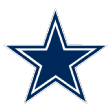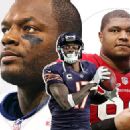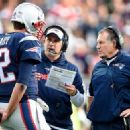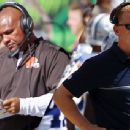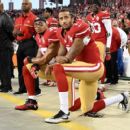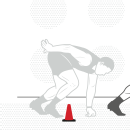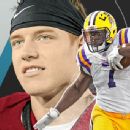Will the Patriots re-sign Dont’a Hightower, or will he get a better offer elsewhere? What about Brandon Williams and the Ravens? Alshon Jeffery and the Bears?
NFL Nation reporters predict the outcomes for the biggest internal free agents on the teams they cover.
NFC East | NFC North | NFC South | NFC West
AFC East | AFC North | AFC South | AFC West
NFC East

Guard Ronald Leary
2 Related
Leary will be one of the more sought-after offensive linemen on the market. With Tyron Smith and Travis Frederick among the highest-paid offensive linemen in the league and right guard Zack Martin looking at a mega-extension as soon as this summer, the chances of the Cowboys keeping Leary are slim. Prediction: With La’el Collins returning from a toe injury, the Cowboys have a starter ready to go. So, it’s time to say goodbye to Leary, who played extremely well in his three seasons as a starter after signing as an undrafted free agent. — Todd Archer

Defensive tackle Johnathan Hankins
The Giants want Hankins back. It’s going to be tough, however, with Jason Pierre-Paul occupying almost $17 million of cap space on the franchise tag. The Giants will get to work and find a solution to keep their defense together. It’s what they are trying to accomplish this offseason. Prediction: JPP gets a long-term deal, and Hankins gets re-signed, making the New York defensive line a force now and into the future. — Jordan Raanan

Defensive tackle Bennie Logan
The Eagles would prefer to keep Logan, but after sinking huge money into Fletcher Cox last offseason, it would be difficult to justify allocating so many resources to the defensive tackle position when there are other areas of need on the team. Prediction: Chances are, the price tag Logan commands in the free-agent market will be too rich for Philly. — Tim McManus

Wide receiver Pierre Garcon
Garcon spent five seasons in Washington and was known for his toughness and consistency. At age 30, he’s coming off a season in which he caught 79 passes for 1,041 yards and three touchdowns. He was the team’s most consistent receiver. The Redskins, however, haven’t made much of an attempt (read: none) to bring back Garcon. There’s a good chance they’ll lose DeSean Jackson, too. But Garcon’s exit, at this time, is more clear. He’ll have multiple suitors as well, so his price tag could be more than Washington wants to pay. Prediction: Garcon is gone. — John Keim
NFC North

Wide receiver Alshon Jeffery
The Bears declined to use the franchise tag on Jeffery for a second consecutive year, and now Jeffery could get a big deal when he hits free agency. Bears management made no effort to re-sign Jeffery in recent weeks. Chicago has exclusive negotiating rights with Jeffery until March 7, but Jeffery wants to test the open market. Prediction: He is expected to find several interested teams in free agency and is likely to leave Chicago. — Jeff Dickerson
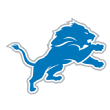
Guard Larry Warford
Warford, Detroit’s best offensive lineman over the past four seasons, is projected to be one of the top guards in free agency. He’s a fantastic run-blocker who holds up well against the pass, too, and will bring in a lot of money. That said, the Lions have two potential Warford replacements on the roster in Joe Dahl and former first-round pick Laken Tomlinson. If the Lions feel one of those players can win the job and be productive, they would likely get pushed out of a bidding derby for Warford. Prediction: Warford will sign elsewhere. — Michael Rothstein

Running back Eddie Lacy
The Packers want Lacy back but likely under a short-term, prove-it type contract that could be loaded with incentives. It only takes one team to believe he can get back to being the 1,100-yard running back he was in 2013 and 2014. Prediction: In the end, some teams might be scared off by the ankle injury that limited Lacy to just five games last season and concerns over his weight, making it more likely that he’ll be back for another run with the Packers. — Rob Demovsky

Running back Adrian Peterson
The Vikings declined Peterson’s 2017 option Monday, meaning he’ll become an unrestricted free agent on March 9 unless the team works out a new deal with him ahead of time. It seems likely the Vikings will attend to their offensive line needs before considering bringing Peterson back, and the soon-to-be 32-year-old running back might find a new suitor in that time. Prediction: Under the logic that prominent veterans are often likely to take pay cuts with new teams instead of staying with their original teams on reduced contracts, the guess here is Peterson will move on. — Ben Goessling
NFC South
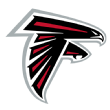
Fullback Patrick DiMarco
The one-time Pro Bowler is a key figure in the offense as a lead blocker for running backs Devonta Freeman and Tevin Coleman, but the Falcons won’t overpay at that position. Prediction: DiMarco ends up reuniting with former Falcons offensive coordinator Kyle Shanahan, now the coach of the 49ers. — Vaughn McClure

Offensive tackle Mike Remmers
The Panthers already have used the franchise tag on defensive tackle Kawann Short and re-signed ends Mario Addison and Wes Horton. They want to bring back end Charles Johnson and wide receiver Ted Ginn Jr., too. But the intriguing free agent is Remmers, who moved from right to left tackle when Michael Oher missed the final 13 games with a concussion. Because of Oher’s situation, the Panthers are having to take a more serious look at keeping Remmers for continuity and depth. Prediction: The Panthers will bring back Remmers if the price is right. — David Newton

Defensive tackle Nick Fairley
Fairley’s market value is tough to predict. The former first-round pick just had a stellar season with the Saints in 2016, including a career-high 6.5 sacks and 22 quarterback hits, so he should be in line for a healthy payday. But teams have shied away from investing heavily in him in the past because he struggled with injuries, and there were questions about his maturity and work ethic early in his career. Fairley had to settle for one-year, prove-it deals in each of the past two seasons. The Saints have other options at tackle, including last year’s first-round pick Sheldon Rankins. Prediction: The guess is that Fairley re-signs somewhere between $6 million and $8 million per year because it was such a good fit for both sides last season. — Mike Triplett
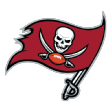
Quarterback Mike Glennon
Glennon, who hasn’t started a game in two seasons, is one of the top quarterbacks on the market. The Bucs will likely try to re-sign him, but they won’t pay him above what a backup would warrant. Glennon should be able to get more elsewhere with a team that would allow him to compete for a starting job. So sure, it’d be great for the Bucs to re-sign Glennon and keep a reliable backup, but that’s unlikely. Prediction: He’ll sign somewhere else for more money. — Jenna Laine
NFC West

Defensive tackle Calais Campbell
In his contract year in 2016, Campbell turned in one of the best all-around seasons of his career with 8 sacks, 53 tackles, 3 fumble recoveries, 2 forced fumbles and one interception returned for a touchdown. Talk about timing. He’ll likely be able to parlay his play into another big payday, despite the fact that he’ll be 31 in September. Prediction: That payday likely won’t come from the Cardinals, simply because another team will pay him more than what Arizona will offer. His services will be in high demand come March 9, and there are teams that need significant help on the defensive line. — Josh Weinfuss

Wide receiver Kenny Britt
The 28-year-old is coming off a career year, one that saw him turn 110 targets into 1,002 yards, becoming the Rams’ first 1,000-yard receiver since 2007. It’s perfect timing for Britt, but it doesn’t mean he’ll return for a fourth season with the Rams. The Rams, under new coach Sean McVay, are expected to move on to other free-agent receivers. Alshon Jeffery is the major prize, but the next tier — DeSean Jackson, Pierre Garcon, Terrelle Pryor Sr., Kenny Stills and others — seems to make more sense. Prediction: In all likelihood, Britt will find work elsewhere. — Alden Gonzalez

Quarterback Colin Kaepernick
Kaepernick is opting out of the final year of his contract and will now get his first taste of free agency. He’s coming off a 2016 season in which he finished in the middle of the pack in passer rating but posted a strong touchdown-to-interception ratio and led all quarterbacks in yards per carry. He also garnered a lot of attention for his decision to protest racial inequality by kneeling during the national anthem. General manager John Lynch, coach Kyle Shanahan and Kaepernick had an open conversation recently, and the sides agreed to leave the door open for a possible Kaepernick return. Prediction: It seems more likely that all parties are going to opt for a fresh start. — Nick Wagoner

Kicker Steven Hauschka
Hauschka hasn’t been at the level of some of the top kickers in the NFL, but he has performed well for the Seahawks during his six-season career. Since the start of 2015, Hauschka has missed 10 extra points, and coach Pete Carroll said last season that Hauschka was kicking the ball too low. Prediction: Given that the Seahawks have already added Blair Walsh, they likely have concluded that they don’t want to pay Hauschka what top-10 kickers make — more than $3 million per season. And that’s the right call. — Sheil Kapadia
AFC East

Cornerback Stephon Gilmore
After not assigning the franchise tag to Gilmore, it is hard to see the Bills coughing up the sort of deal required to keep him. He was firm last summer about his perceived value as one of the NFL’s best cornerbacks, and after a somewhat disappointing 2016 season, the Bills would be wise to not pay Gilmore elite money. They have extended several of their young players in recent years — Cordy Glenn, Jerry Hughes, Marcell Dareus and others — but cannot keep everyone. Prediction: Gilmore will sign a big deal elsewhere. — Mike Rodak

Wide receiver Kenny Stills
Stills is a talented, young receiver who led Miami in touchdown receptions last season with nine. He is hitting the market at the right time, as Pro Bowl receiver Antonio Brown just set a new ceiling for the position at $17 million per year. Stills may be able to get in the $10-$12 million range, and that could be too rich for the Dolphins, who also have work to do with teammate and fellow receiver Jarvis Landry’s contract. Prediction: The price will be too high for the Dolphins to bring back Stills. — James Walker

Linebacker Dont’a Hightower
While the Patriots elected not to restrict Hightower with the franchise or transition tag, he remains a top priority to the team. Hightower will have the freedom to fully explore the free-agent market, but he plans to maintain an open dialogue with Bill Belichick & Co. In the end, the Patriots will likely have a chance to match any offer Hightower receives, and thus, it is a situation where the market will ultimately dictate what happens. So, will another team step up with an offer the Patriots aren’t willing to match? It’s tough to project, but I’m putting this one in the category of safety Devin McCourty’s free-agency situation from two seasons ago. Prediction: Hightower will be back with the Patriots on a lucrative but not over-the-top contract after going through the same process McCourty did. — Mike Reiss

Quarterback Geno Smith
A return is “not out of the question,” Smith said. He has two things going for him: He’s young (26) and cheap. Knee rehab could complicate his timetable. Prediction: Realistically, he’ll probably move on to another team, but he can’t be totally dismissed from the Jets’ plans. — Rich Cimini
AFC North

Defensive tackle Brandon Williams
Considered one of the top free agents in the league, Williams recently said his future with the Ravens remains “up in the air.” Ravens officials have stressed the need to hold on to Williams, and despite losing some young talent in free agency in recent years, Baltimore has a strong history of re-signing the players the team is focused on keeping. The Ravens could have a difficult time re-signing Williams, however, if another team offers more than what the Giants gave defensive tackle Damon Harrison ($46.25 million over five years, including $24 million guaranteed) last year. Prediction: While no one can rule out Baltimore re-signing Williams, the more likely scenario is he’ll be lured elsewhere. — Jamison Hensley

Guard Kevin Zeitler
Zeitler is one of the top guards on the free-agent market — and he’ll likely be paid for it. The Bengals value tackles over guards, and with left tackle Andrew Whitworth also a pending free agent, he’ll likely be their top priority. Prediction: Expect Zeitler to be in another uniform next fall and to be paid like one of the best guards in the NFL. — Katherine Terrell

Wide receiver Terrelle Pryor Sr.
The Browns’ efforts to sign Pryor to an extension have not worked out, and he will test the market. There, he will learn that it only takes one team to make a player wealthy. Prediction: Pryor will leave — and leave a gaping need at receiver for the Browns. — Pat McManamon

Linebacker Lawrence Timmons
The Steelers are exploring re-signing Timmons but aren’t expected to break the bank for him while he tests the market. Timmons just played out a sizable five-year deal, and though he was productive in 2016, he turns 31 in May. The team also has good inside linebacker depth with Ryan Shazier and Vince Williams. Timmons was the first draft pick of the Mike Tomlin era and wants to finish his career in Pittsburgh. Prediction: Here’s to both sides finding common ground on a reasonable contract for two to three years. — Jeremy Fowler
AFC South

Cornerback A.J. Bouye
Bouye was a pleasant surprise for the Texans in 2016, entering the year as the team’s No. 4 cornerback and finishing as one of the top corners in the league. While the Texans have said they would love to have the young cornerback re-sign, they already have three solid cornerbacks under contract, and another team could reward Bouye with a much bigger contract than he could get in Houston. If the Texans re-sign Bouye, it would leave very little wiggle room for other improvements and to re-sign other free agents. Prediction: The financials to bring back Bouye will likely not add up for the Texans. — Sarah Barshop

Cornerback Darius Butler
Butler was one of the few positives on a weak Colts defense last season. He’s their best slot cornerback, and he has led them in interceptions in three of the past five seasons. Butler presented a bonus last season when he shifted to safety at times. His versatility gives the Colts some flexibility if they decide not to re-sign veteran safety Mike Adams, who will turn 36 years old later this month. Prediction: The Colts will re-sign Butler. — Mike Wells

Cornerback Prince Amukamara
Defensive coordinator Todd Wash was pleased with the way Amukamara played in 2016, even though Amukamara didn’t put up big numbers (six pass breakups, no interceptions). It doesn’t appear the Jaguars are making a big run to re-sign Amukamara, however. They need a No. 2 corner opposite Jalen Ramsey, and they may have their sights set a little higher than Amukamara (The Texans’ A.J. Bouye, perhaps). Prediction: Signing Amukamara could require a deal around $10 million annually, and the Jaguars might feel it would be better to spend a little more to try to land Bouye. — Mike DiRocco
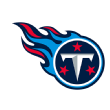
Wide receiver Kendall Wright
The Titans don’t view Wright as a big target, but other teams that covet a slot type might find him enticing in the receiver market. He made $7 million on his fifth-year option last season, and both sides have all but said he won’t be back. The Titans deactivated him for the regular-season finale, and he tearily spoke of his five seasons in Tennessee on locker clean-out day. Prediction: A change of scenery is likely to be mutually beneficial. — Paul Kuharsky
AFC West

Outside linebacker DeMarcus Ware
The Broncos’ three most prominent free agents are all on defense — Ware, nose tackle Sylvester Williams and defensive end Vance Walker. Of the three, the Broncos would have interest in bringing Walker and Ware back. Ware is an intriguing case given his standing in the league — he’s in the exclusive 100-sack club — his age (34) and the fact he’s coming off back surgery. Broncos coach Vance Joseph said at the scouting combine he has had several conversations about bringing back Ware and that the team would be willing to sign him if he is agreeable to a discussion about playing time and role. Prediction: If Ware is flexible there, he figures to be re-signed. — Jeff Legwold

Defensive lineman Dontari Poe
Coach Andy Reid said recently the Chiefs would like to re-sign Poe, but that seems unlikely. The sides have had plenty of time to reach an agreement on a long-term contract. Poe could attract a lucrative offer from another team once free agency begins, and it’s not the Chiefs’ way to match even if they’re given the chance. They generally don’t let another team dictate the terms of a contract they must meet. Prediction: Poe will get a big deal from another team. — Adam Teicher

Running back Danny Woodhead
Even though he played just two games in 2016 due to an ACL injury and turned 32 years old in January, the Chargers would like to bring back Woodhead. He has a good rapport with quarterback Philip Rivers and complements Melvin Gordon’s bruising running style as a change-of-pace back who can operate on third downs and in the red zone. New coach Anthony Lynn coached Woodhead while with the Jets, so he’s familiar with the cat-quick runner’s skill set. Chargers general manager Tom Telesco told reporters at the NFL combine this week that the team is working to bring Woodhead back into the fold for 2017. Prediction: Woodhead will be re-signed. — Eric D. Williams
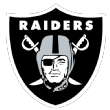
Running back Latavius Murray
Murray was a workhorse for the Raiders last season, scoring 12 rushing touchdowns, the third most in a single season in franchise history, even if his touches were down with the arrival of rookies DeAndre Washington and Jalen Richard. Quarterback Derek Carr wants Murray to return, and one would think that would carry much weight. But Murray, a Pro Bowler in 2015 who averaged the same 4.0 yards per carry in 2016, will likely get big-money offers elsewhere. Prediction: If those offers are significantly bigger than Oakland wants to pay, Murray will be a former Raider and Oakland will have a big hole to fill. Adrian Peterson, anyone? — Paul Gutierrez



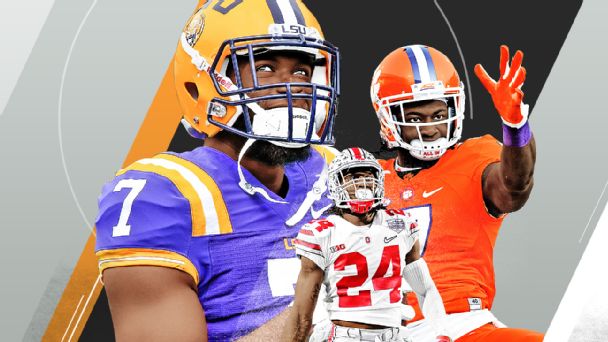
 Round 1: April 27, 8 p.m. ET
Round 1: April 27, 8 p.m. ET